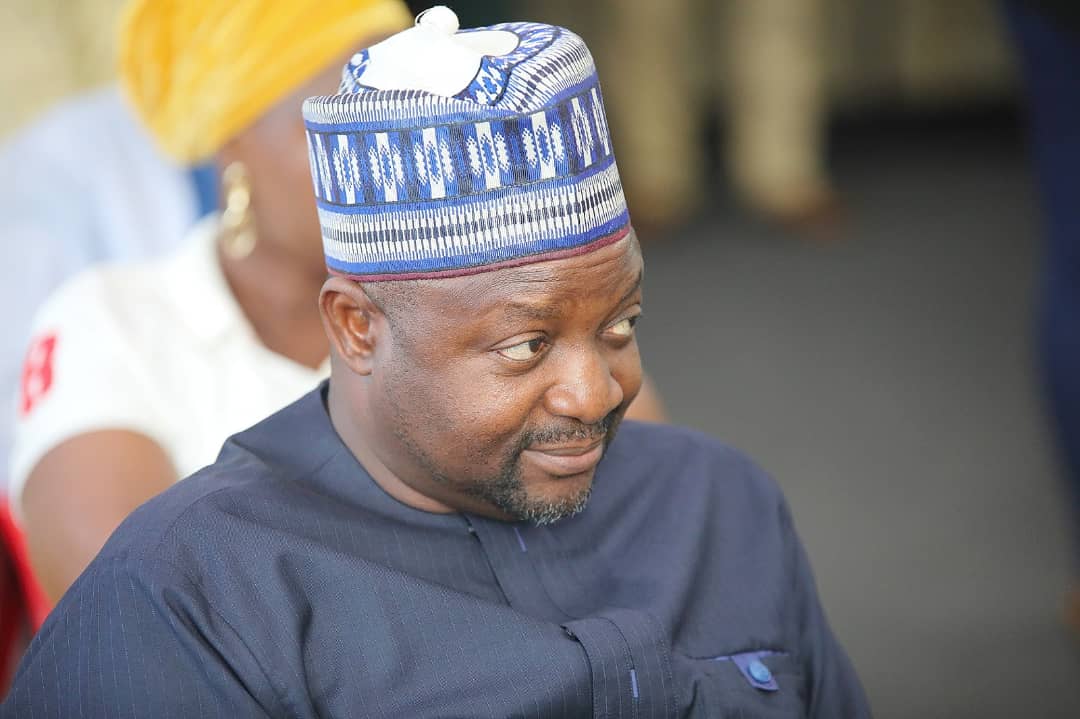Take sports festivals seriously
The 20th National Sports Festival just ended in Edo State. The 13-day event held between March 22 and April 12, 2021. Originally scheduled to hold earlier, the festival faced significant drawbacks and delays. It, however, offered surprises in the personal performances of athletes. Outstanding among such performances is the story of the 10-year-old girl who […]

The Minister of Sports and Youth Development Mr. Sunday Dare
The 20th National Sports Festival just ended in Edo State. The 13-day event held between March 22 and April 12, 2021. Originally scheduled to hold earlier, the festival faced significant drawbacks and delays. It, however, offered surprises in the personal performances of athletes. Outstanding among such performances is the story of the 10-year-old girl who won a gold medal. Another feature was the double victory of Delta State, which not only won the overall trophy as the best-performing state with 158 gold, 116 silver and 110 bronze medals but also the right to host the next festival in 2022. Delta had beaten five other states to win the hosting rights. Delta’s lead was followed closely by the host state, Edo while Bayelsa State came third on the honours roll. Sokoto and Zamfara trailed at 36th and 37th positions respectively. Governor of hosting Edo State, Godwin Obaseki, congratulated all participants for a good outing.
There were other developments that created some stir in the course of the exercise, which included the threat by the host state to close the festival halfway, over its grouse that the federal government had failed to come up with its portion of the funds for the games. The federal government had promised to contribute N500 million to the games but delayed in remitting the same to the host government even after the games had started. Also, there were a series of complaints about the quality of equipment for combat sports.
- We are not harbouring criminals, Northern community in Abia
- Minister Pantami’s case and the ‘War on Terror Witchhunt’ in Nigeria
The foregoing notwithstanding, the festival was rated success for even holding at all, just as it buoyed up hope of better conduct of the future versions.
We commend the Edo State government for finally hosting the festival after a series of postponements. However, it is appalling that despite the delays, the federal government could not keep its term of the agreement leading to the threat of suspension by the host state. The government must understand the place of sports in a nation’s development and should not toy with it. Sporting events apart from showcasing talents that can be groomed for international competitions, have the potential of raising money for the host country.
The NSF was first established in 1973, under the administration of General Yakubu Gowon, for the purpose of promoting national unity through sports and identifying suitable sports persons that will represent the country in international competitions. In that context, therefore, the NSF is the country’s version of the ‘Olympics’ sports meet. In view of that, there is no better avenue or event to provide the unity which the country is in dire need of at the moment. Also, many youths in Nigeria are idle due to unemployment and as we all know, an idle man is the devil’s workshop. Sports can keep such people occupied and take their minds off negative things which could include crime.
The just concluded festival offered significant lessons including a lamentable reflection on the country’s shabby disposition to sports administration, which is marked by the traditional fire-brigade approach that still persists in managing matters concerning sports development. The funding crisis and the condition of the athletes, such as age and health status, testify to the need for improvement in the administration across the country.
The foregoing also draws attention to the state of sports facilities across the country, with most of the existing ones in a dilapidated condition, while several others are not even existent. It is in this respect that the National Sports Commission (NSC) has its job cut out as two-pronged. In one vein is the task of maintaining a more robust interface with the sports councils of respective states while the other is to avail the country a sustainable sports development programme.
We expect Delta State, which is to host the next NSF in 2022, to learn from the mistakes of the just concluded exercise and deliver a more befitting exercise to the country.
